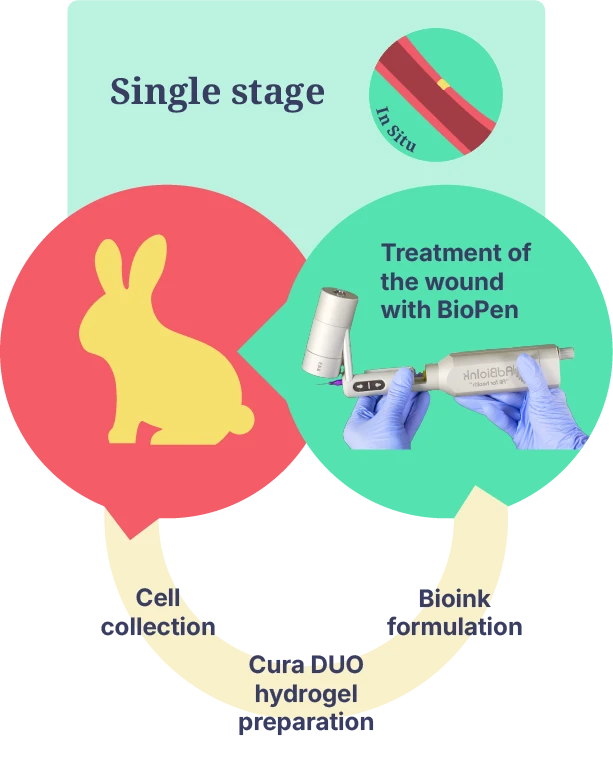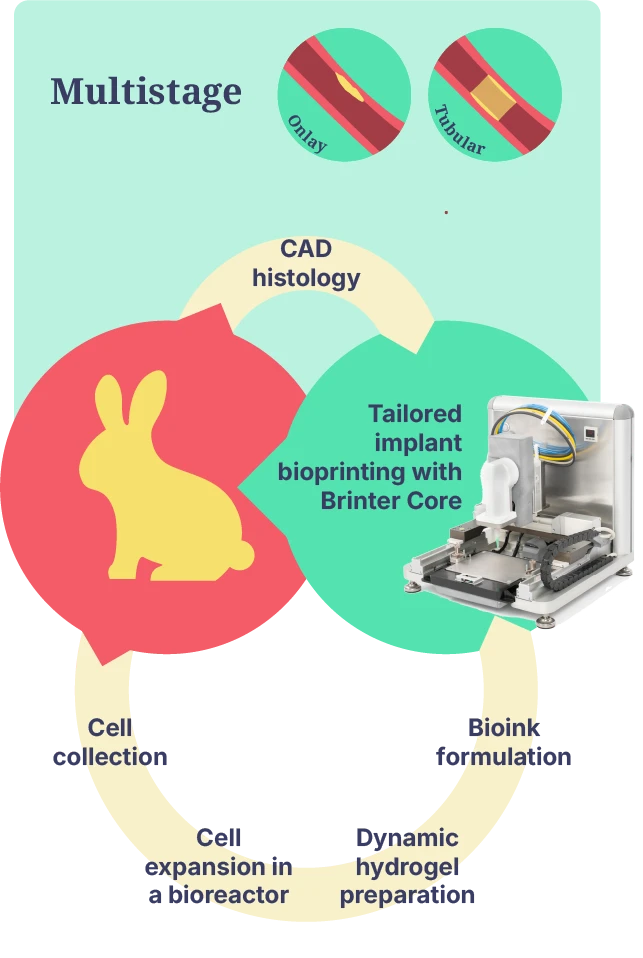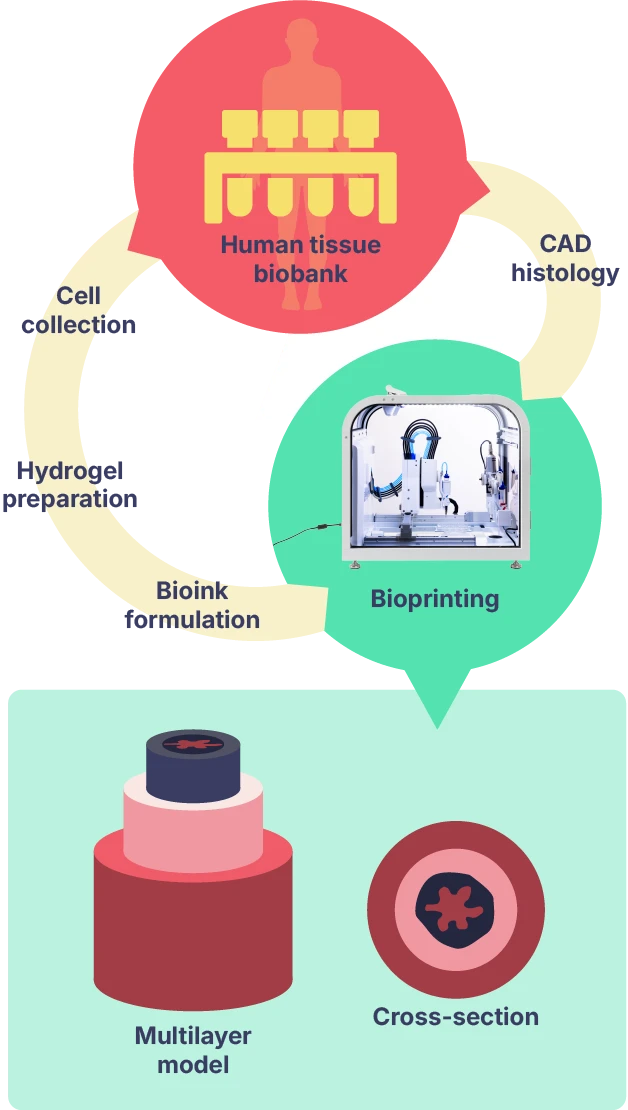An ethical approach to in vivo research
In vivo and in vitro models are two types of research tools used to study diseases and test new treatments.
Both will be used in STRONG-UR research activities.
- “In vivo” refers to experiments carried out inside a living organism. These models help researchers understand how a treatment works in a real, biological system. For example, testing a new drug on mice before using it in humans is an in vivo model.
- “In vitro” refers to experiments conducted outside of living organisms, typically in petri dishes or test tubes. These models allow scientists to study cells, tissues, or molecules in a controlled environment, making it easier to explore specific biological processes.
In vivo


In vitro

Why we still need animals in medical research
While STRONG-UR bioprinted urethral models are proposed to enable robust preclinical testing, animal research is still necessary in some cases.
In this project, New Zealand White (NZW) rabbits have been chosen because their anatomy closely resembles that of humans, making them a reliable model for studying urethral reconstruction.
They are widely used in research, which allows scientists to compare results with existing studies and build on previous knowledge.
Although bioprinted models are a promising step forward, they cannot yet fully replicate the complexity of a living organism.
Animal studies help ensure that medical innovations are safe and effective before they reach human patients.
Before testing begins, researchers must first confirm that the bioink formulations used in bioprinting are safe and compatible with living tissue.
At STRONG-UR, we fully acknowledge the sensitivity of conducting in vivo experiments with animals and are committed to upholding the highest ethical standards.
All animal studies within the project will strictly adhere to the International Guiding Principles for Biomedical Research Involving Animals, as outlined by the Council for the International Organizations of Medical Sciences, as well as Directive 2010/63/EU and the Code of Ethical Conduct for Animal Experimentation.
These experiments will be carried out by experienced scientists and researchers, all holding the necessary ethical approvals and certifications.
To ensure transparency and accountability, the project will follow the ARRIVE guidelines 2.0 and register all animal studies on Preclinicaltrials.eu.
The team strictly follows the ‘three Rs’ principles across all animal research:
- Replacement refers to our commitment to developing in vitro models as alternatives to animal testing, including the use of 3D tissue engineering of the human urethra.
- Reduction is achieved by using non-invasive imaging techniques to monitor animal health over time, reducing the number of animals required.
- Refinement ensures that all animals are housed in authorised facilities and provided with the highest standards of care, including using minimally invasive techniques to induce conditions and ensuring humane treatment throughout the research process.
By taking these steps, STRONG-UR strives to balance scientific progress with the ethical treatment of animals, ensuring the highest level of care while advancing medical knowledge.


